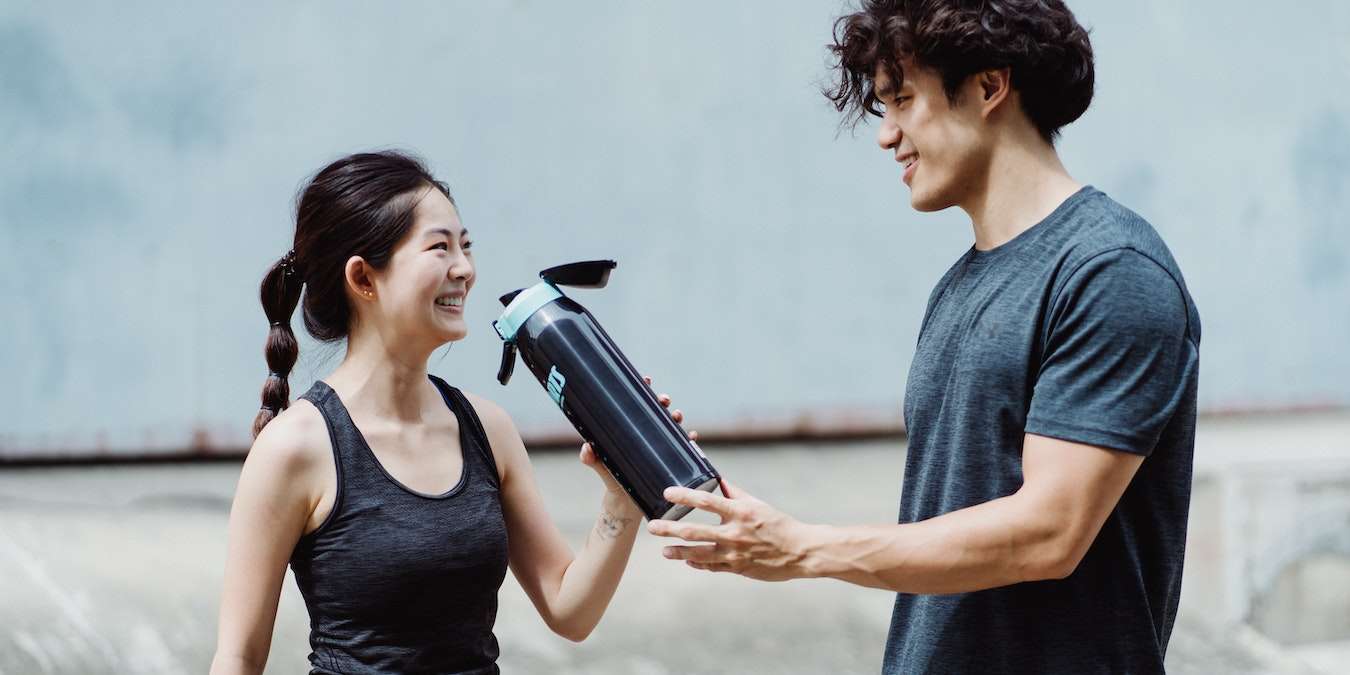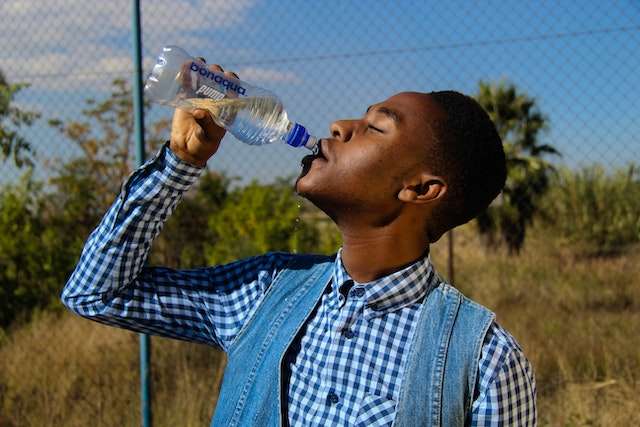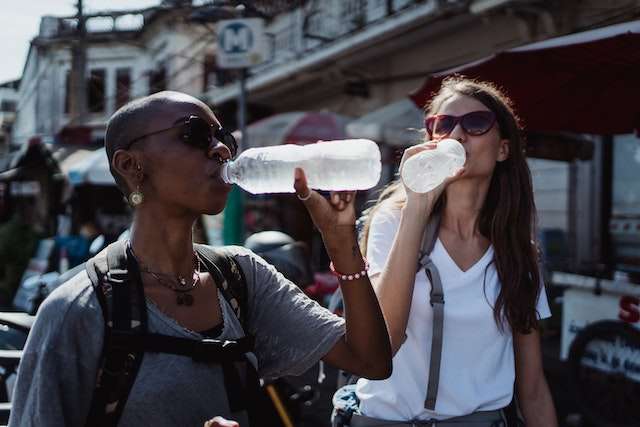
Your parents or doctor tell you, “You need to drink more water!” But do you understand why or even know how to meet this goal? 50-70% of our body weight consists of water. Water fuels several physiological processes within our bodies, like regulating our temperature, lubricating joints, protecting vital organs, and helping with removing waste.
Drinking enough water is essential for preventing dehydration. Read on for some tips for increasing your water intake and staying hydrated.
1. Carry a water bottle
One of the easiest ways to naturally increase your water intake is to ensure you always have some around. Buy a reusable water bottle that you like and can hold at least sixteen ounces of fluid. Decorate it with stickers so you are more excited to take it everywhere with you. Consider purchasing a bottle with a strap if you enjoy going on long walks and hikes.
2. Just keep sipping

The doctor’s advice is to “just drink when you’re thirsty.” Trusting your body to tell you when it needs something can be an empowering and intuitive process. For those who are newer to the hydration game, this might feel a bit intimidating at first, so try just taking a sip of water whenever you remember to.
3. Set a timer
If you have trouble remembering that water even exists, set a timer for a regular interval of your choice. When it goes off, don’t pressure yourself to drink a whole glass. Just take a few sips.
4. Make it fun

How do you take your water? There’s still, sparkling, seltzer… with a splash of lemon or lime juice… a slice of cucumber or your favorite fruit… or a few water flavoring drops. There are plenty of ways to dress up your water and make it tastier and more exciting. When I started adding lots of ice and a few drops of lemon juice to my water, my water intake went way up!
5. Drink juice or herbal teas
You may have often seen people discouraging this suggestion due to the high sugar or calorie content, but if your focus is on hydration, drinking juice or herbal teas is effective. In fact, any drink will technically count towards your hydration levels, even caffeinated soda, because every drink has some water in it.
6. Increase your electrolytes
Healthline states that electrolytes are minerals that help your body carry out vital functions, including hydration. The main electrolytes are sodium, potassium, calcium, magnesium, phosphorous, chloride, and bicarbonate. You especially want to pay attention to your electrolyte intake when you are dehydrated after exercising, being out in the sun, or having an episode of diarrhea or vomiting. Coconut water, milk, certain fruit juices, and sports drinks are examples of drinks rich in electrolytes. You can also buy electrolyte tablets or drops to make your own electrolyte-rich drinks at home.
7. Eat water-rich foods

If you’re getting hungry, good news! Munching on yummy fruits and vegetables, like watermelon, cucumbers, and apples, can help you stay hydrated. These fruits and veggies have a high water content. Other foods to check out include tomatoes, spinach, cabbage, celery, melons, lettuce, peaches, zucchini, and soup broth.
8. Study your pee
This is going to sound weird but trust us on this one: next time you go to the bathroom, take a good look at the color of your pee. You can use this Australian chart and Healthline chart as a reference. It’s not an exact science but think of light pee as an indicator that you’re on the right track and darker shades of pee as a warning sign of dehydration. Please keep in mind that some medications, vitamins, foods, or health conditions can impact the color of your urine, and you should talk with your doctor if you’re worried about what you’re seeing in the toilet.

You can do it
It can be hard at first, but drinking water is one of the most important habits to build in your life. One day, you’ll be chugging water like a seasoned athlete without even thinking about it. Once you’ve aced hydration, check out these other lifestyle changes that’ll have you feeling even better.
Frequently Asked Questions
What are the signs of dehydration?
Dehydration can look different for each person, especially depending on age. For infants and young children, look out for a lack of wet diapers or tears when crying, sunken eyes or cheeks, dry mouth and tongue, and irritability. In adults, signs of dehydration include extreme thirst, urinating less, darker shades of urine, fatigue, dizziness, and confusion.
Are there times when I need to be drinking even more water than normal?
You definitely should drink more water when you are out in the sun or engaging in physical activity (have you checked out our list of easy home exercises to do without equipment?). Whatever fluid you lose through sweating should be replaced. High altitudes can increase your chances of dehydration. If you are sick with a fever, vomiting, or diarrhea, you will need to focus on replenishing the fluids your body is losing from the illness. If you are pregnant or breastfeeding, you may require more water than normal to stay hydrated.
I'm drinking a lot of water but still feeling dehydrated. What am I missing?
Make sure you are replenishing your electrolytes. Just like with sweat, you need to replace any sodium you lose, so unless advised otherwise by your doctor, try eating a salty snack or even mixing some salt into your drink.
Image credit: Pexels








